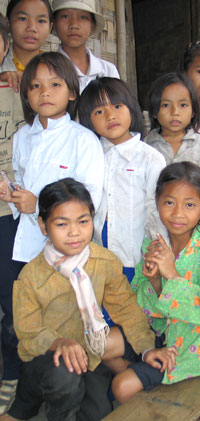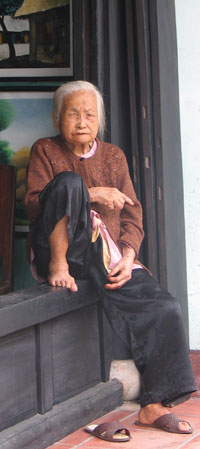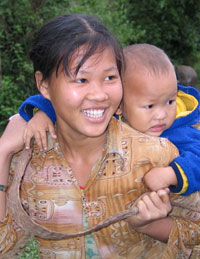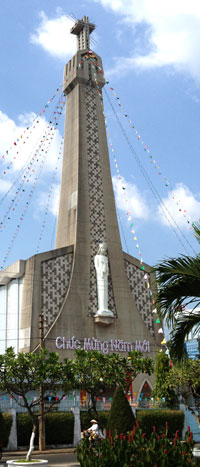Developmental Idealism in Vietnam
Dramatic changes have characterized Vietnam during the past century, including prolonged periods of war, socialist collectivization, political reunification, economic renovation, and an extensive opening to the outside world. Additionally, major political initiatives designed to affect basic aspects of family life, including mate selection, marriage, and gender relations, have been adopted by the Vietnamese government.
Several studies in Vietnam are focused on understanding the implications of these social changes for family relationships and dynamics. In collaboration with the Population Studies Center at the University of Michigan, the Family Section of the Institute of Sociology in Hanoi launched the Vietnam Surveys of Family Change (VSFC). These probability surveys include three marital cohorts, with each cohort corresponding to a distinct historical period: 1) the war cohort, who married between 1963-1971, covering a period of collectivization in the North and the resistance war against the U.S. for independence and reunification; 2) the reunification cohort, which includes those who married following the end of U.S. conflict and after the country was reunified, between 1977-1985; and 3) the renovation cohort, who married between 1992-2000, when economic reforms and an increased openness to the rest of the world was well underway. This cohort design is ideally suited for examining changes over the past few decades and their impact on families. A series of measures exploring aspects of developmental idealism were included in these surveys.
A second study in Vietnam involves a collaboration between the Population Research Institute at Pennsylvania State University and the Vietnam Museum of Ethnography designed to examine the impact of television on family change. This project focuses on remote, rural residents of an ethnic minority group in Vietnam (18% of Vietnam’s population is comprised on 53 different ethnic minority groups) and will include many measures that have been developed as part of the Measuring Developmental Idealism and Family Life project. The P.I. for this project is Rukmalie Jayakody.
A third study involves a collaboration between the Center for Population Health and Aging at Pennsylvania State University and the Institute of Sociology in Hanoi. This project focuses on the impact of recent socioeconomic changes in Vietnam on intergenerational relationships and elder care expectations and will also utilize measures developed as part of the Measuring Developmental Idealism and Family Life project. The P.I. for this project is Rukmalie Jayakody.










